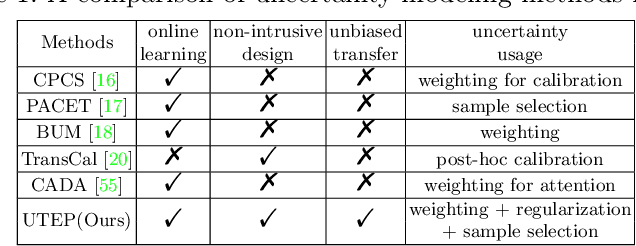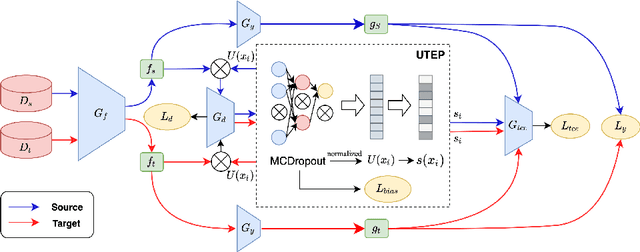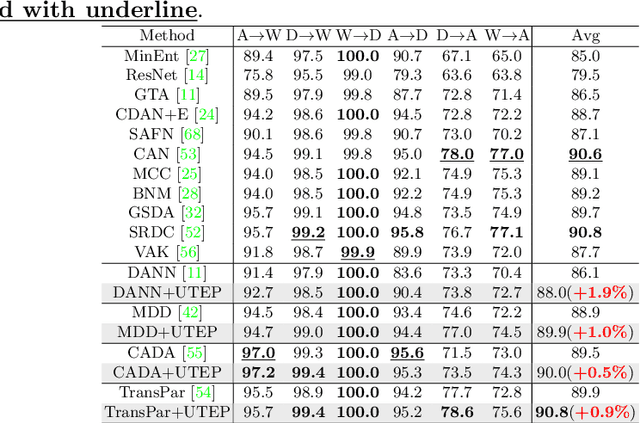Learning Unbiased Transferability for Domain Adaptation by Uncertainty Modeling
Paper and Code
Jun 02, 2022



Domain adaptation (DA) aims to transfer knowledge learned from a labeled source domain to an unlabeled or a less labeled but related target domain. Ideally, the source and target distributions should be aligned to each other equally to achieve unbiased knowledge transfer. However, due to the significant imbalance between the amount of annotated data in the source and target domains, usually only the target distribution is aligned to the source domain, leading to adapting unnecessary source specific knowledge to the target domain, i.e., biased domain adaptation. To resolve this problem, in this work, we delve into the transferability estimation problem in domain adaptation and propose a non-intrusive Unbiased Transferability Estimation Plug-in (UTEP) by modeling the uncertainty of a discriminator in adversarial-based DA methods to optimize unbiased transfer. We theoretically analyze the effectiveness of the proposed approach to unbiased transferability learning in DA. Furthermore, to alleviate the impact of imbalanced annotated data, we utilize the estimated uncertainty for pseudo label selection of unlabeled samples in the target domain, which helps achieve better marginal and conditional distribution alignments between domains. Extensive experimental results on a high variety of DA benchmark datasets show that the proposed approach can be readily incorporated into various adversarial-based DA methods, achieving state-of-the-art performance.
 Add to Chrome
Add to Chrome Add to Firefox
Add to Firefox Add to Edge
Add to Edge